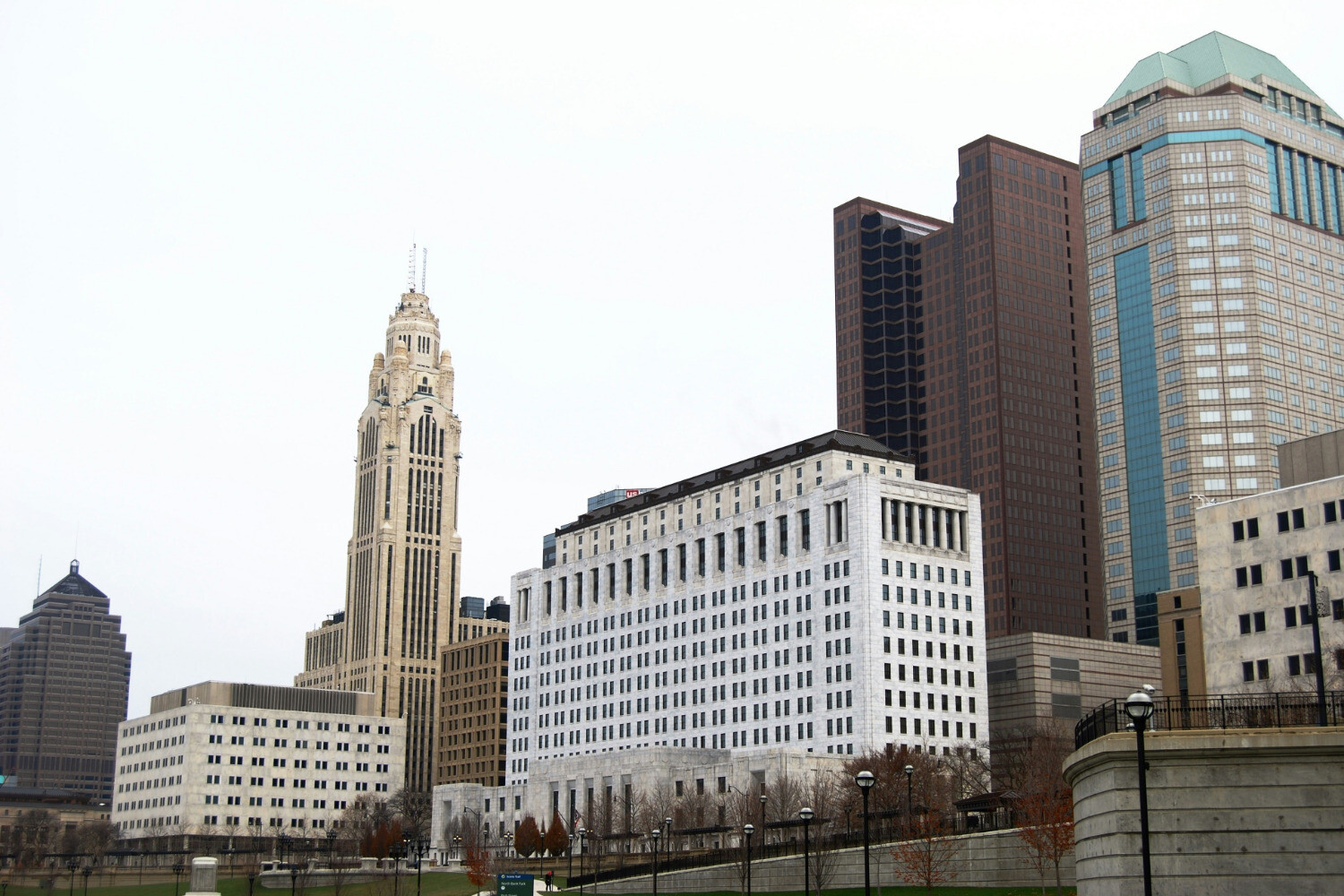Bookmark These Hotel Terms (and Acronyms!): A Glossary for Business Travel Planners

The travel industry has so many of its own terms and acronyms that it can sound like another language.
It’s not always easy to understand what they mean, especially if you’re new to the industry or aren’t immersed in the hospitality business.
But, knowing all of the key hotel terms and acronyms will make it easier to book and manage business travel.
Whether you’re a solo traveler or a corporate travel manager, this knowledge will help you:
- Understand the terms of your reservation better
- Interact with hospitality customer service in a straightforward and knowledgeable manner
- Have a better hotel/travel experience in general
So in this post, we’re going to teach you the terms insiders use in the hospitality industry.
You’ll be speaking fluent hotel in no time!
Table of Contents
1. Hotel Terms and Acronyms That Travelers Need to Know
2. Hotel Terms And Acronyms Commonly Used in the Hospitality Industry
Hotel Terms and Acronyms for Travel Planners
Let’s start off with some essentials. These are terms that every traveler should get acquainted with.
Boutique Hotel
Boutique hotels offer a more luxurious, stylish, and unique experience for guests. They’re known for being comfortable, quiet, and a step above ‘average’ hotel rooms.
Full Board
Full board means that you can expect not only a hotel room but also breakfast, lunch, and an evening meal with your stay. A bed and breakfast, by contrast, includes only a bed and breakfast.
Group Rate
A group rate is a lower price sometimes offered or given to groups when several hotel rooms (usually nine or more at a time) are booked at once.
Group rates help hotels to secure more bookings with large-scale clients, and they help guests by getting them a discount and a better deal on accommodations.
Hotel Engine can get you a group rate at hotels all around the world. Learn how our corporate lodging services can save you both time and money!
Guest Room
Guest room is the term used to describe a single hotel room that contains one or more beds. Related terms include double room, which describes hotel accommodations with two rooms, or a suite, which is a larger, multi-room space.
Half Board
Half board means that you can expect not only a hotel room but also breakfast and one other meal with your stay.
Hotel Chain
Hotel chain is the term used to describe similarly branded hotels that operate under the ensign of a particular hotel group. They may be subsidized or franchised, but they must receive approval of some kind before operating a hotel under that particular brand.
Discover: 5 of the Best Hotel Chains for Business Stays and Events
Locally Negotiated Rate (LNR)
LNR stands for locally negotiated rate, which is an agreement made by the hotel with a local organization or corporate group to provide rooms or meeting spaces at more competitive rates in return for repeat business.
Minimum Length of Stay (MoS)
MoS, which means minimum length of stay, is a stay restriction policy that dictates the absolute minimum number of nights a guest must book a hotel room in order to secure the booking.
No-Show
A no-show occurs when a guest reserves a room, fails to cancel the booking by the hotel’s cancellation deadline, and never arrives to claim their reservation.
Online Travel Agency (OTA)
Online travel agencies are online marketplaces where travelers can research booking information for things like flights, hotel rooms, rental cars, etc. These marketplaces also allow for seamless, instant booking and reservations.
Now, if you need a step above an OTA, and want an easy-to-use booking solution that also provides tools and analytics for your business, Hotel Engine has you covered!
Room Nights
Room nights is a statistical metric used in the hospitality industry. It represents the total number of rooms a guest commits to occupying in exchange for a specific contracted rate.
So, if a guest books one room for three nights, they would be said to have generated “three room nights.”
Note that room nights do not necessarily equal the number of people staying at the hotel.
Travel Management Companies (TMC)
A TMC is a travel agency that aids companies in organizing travel processes, policies, plans, and bookings for their teams. They can often secure better rates than would otherwise be possible, thus saving companies time, money, and hassle.
Related: How to Find the Best Hotel for the Value
Industry Terms for Hotel and Housing Providers
Now, we’re going to dive into some terms used by professionals in the hospitality industry.
You may not hear these terms every day, but knowing will help you to understand how hotels structure their deals and think about profits.
They’re a bit more complicated, but here are some of the most common and important hotel terms used by hospitality pros.
Average Daily Rate (ADR)
Average daily rate is a metric used by businesses in the hospitality industry to help them calculate the amount of revenue earned for an occupied room on a given day. It’s actually one of the most important key performance indicators (KPIs) hotels use to track the success of their business.
ADR is calculated by dividing the amount of revenue earned by the total number of rooms sold.
Allocation
Allocation is the process of selecting a specific, sometimes limited number of rooms to make available to guests. In some cases, hotel managers may choose to allocate only some rooms, thus leaving some open for later when demand and profits are higher.
Amadeus
Amadeus is the leading computer reservation system (also called a global distribution system) for the travel industry.
Average Rate Index (ARI)
ARI is a metric used by the hospitality industry to measure whether or not they’re achieving a sufficient ADR as compared to other hotels in their demographic or market space.
Average Room Rate (ARR)
ARR is a hospitality industry KPI that helps to evaluate the average rate per available extent. It’s measured by taking the total room income and dividing it by the total rooms engaged.
This is an essential metric for determining a hotel’s financial success. It’s also sometimes interchangeable with ADR (average daily rate).
Best Available Rate (BAR)
The BAR is the absolute best, lowest available rate that can be offered for a room at that particular period of time. The purpose of measuring the BAR for a room is to make payment for hotel rooms less confusing.
The BAR may also fluctuate according to supply and demand and may vary greatly from day to day.
Booking Engine
A booking engine is an online application that hotels use to process online reservations on their websites and social media sites.
Hotel Engine can save you time and money on corporate bookings. Learn more about our booking engine today!
Channel Management
Channel management is the process that hotels use to track the business they do through third-party channels. This means managing their connections with:
- Online travel agents
- Retail travel agents
- Meta search engines
- Aggregators
- Global distribution systems
Competitive Set
In the hotel industry, a competitive set (often shortened to “comp set”) is a group of direct competitors that a hotel measures and compares its performance against. Hoteliers use this information to try to make their hotels more competitive in the marketplace.
Central Reservation System (CRS)
A CRS is a type of reservation system software used to help hotels track inventory, manage guest reservations, and process guest reservations in real time.
Distribution Channels
A hotel distribution channel is any location, either online or offline, where a hotel can sell a room to a customer.
Hotel Engine is one example of a distribution channel, as we can facilitate room reservations with over 700,000 different hotels around the world.
Tip: When booking travel through a third-party distribution channel, you may find yourself wondering if the website you’re on is a scam. Learn how to spot the signs of fraud in this article: How to Avoid Booking Scams.
Global Distribution System (GDS)
Global distribution systems serve as a conduit between travel bookers and suppliers.
These distribution systems provide live information regarding pricing and availability to travel agents and various online booking engines. This helps to facilitate automated transactions.
The four major legacy GDSs are:
- Amadeus
- Galileo
- Sabre
- Worldspan
Gross Operating Profit Per Available Room (GOPPAR)
GOPPAR is a metric that helps hoteliers to understand how their hotel is performing financially. It compares the hotel’s revenue to its operational performance.
To figure a hotel’s GOPPAR, divide the gross operating profit by the total number of available rooms.
Net Rate
The net rate for a hotel room is what a reseller pays for rooms without any commission included.
For example:
If a hotel room reseller books a block of hotel rooms at $180 per room at net rate (this means that there’s no commission), and then resells those rooms for $200 per room, the reseller will net $20 per room, and that will be the total revenue.
Occupancy Rate
A hotel’s occupancy rate is the percentage of rooms that are occupied at any given time.
It’s another key performance indicator, measured by dividing the total number of rooms occupied by the total number of rooms available, then multiplying that number by 100 to create a percentage.
Occupied Room
An occupied room is a room that a guest has already booked and checked into.
Overbooking
Overbooking is a practice within the hospitality industry in which more rooms are booked out than are available, with that anticipation that a certain number of reservations will be canceled.
Hotels overbook to help them ensure that they’ll reach maximum revenue and occupancy.
Property Management System (PMS)
A PMS is a system that hotels use to manage many of the practical aspects of running a hotel business. It’s the system used for things like:
- Booking reservations
- Guest check-ins and check-outs
- Room assignment
- Managing room rates
- Billing
Rack Rate
The rack rate is the rate a hotel room is assigned before any discounts are applied. This number is usually set artificially high so that discounts will look especially generous and attractive.
Revenue Management System (RMS)
Revenue management systems are software used by hoteliers to analyze things like:
- Competitor rates
- Historic rates
- Market dynamics
- Inventory levels
This helps them predict the demand for each room type, allowing them to adjust their rates for maximum profitability and room revenue.
Revenue Per Available Room (RevPAR)
RevPAR is a metric used in the hospitality industry to measure a hotel’s performance.
You can calculate RevPAR in two different ways.
- Multiply the hotel’s average daily room rate by its occupancy rate.
- Divide total room revenue by the total number of rooms available in the measured period.
Walk-In (Or Walk-Up) Rate
The walk-in price for a hotel room is the same as the rack rate. It’s a price figure that’s set artificially high with the expectation that the customer will ask for discounts, use coupons, etc.
Yield Management
This term describes the process of attempting to understand and anticipate customer needs, desires, and behaviors, with the end goal of maximizing revenue and offering better service.
Hotel Engine can help you save up to 60% on business lodging at more than 700,000 hotels worldwide. Sign up today!
Conclusion
That’s a wrap!
Now you know the most important and often-used terms in the industry.
Take this knowledge and use it to your benefit — whether to simply understand your booking or use in industry conversation!
Here are some other articles you might enjoy:
Team-Building Retreat Ideas | Productive Things to Do on a Business Trip | Travel Hacks for Your Next Work Trip









